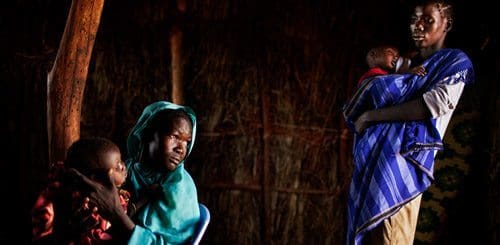"Their bombs have killed us and destroyed schools. There is nothing to eat. I did not want to leave. I want to be with my family. But I had no other choice. Even here things are very difficult but I have to stay here for now."
Abil Adbdalla, 15-year-old refugee boy from Southern Kordofan, living in Yida refugee camp, South Sudan
Civilians in Sudan’s Southern Kordofan and Blue Nile states continue to bear the brunt of fighting between the Sudanese Armed Forces (SAF) and the Sudan People’s Liberation Army-North (SPLA-N). Hundreds of thousands of people have been displaced since conflict broke out in the two states last year, both internally and as refugees into neighbouring countries. Between June 2011 and April 2012, over 114,000 Sudanese fled to South Sudan, and 30,000 fled to Ethiopia. This is largely due to ongoing indiscriminate aerial bombardments by the SAF and severe food shortages, which have been exacerbated by the Sudanese government’s prevention of independent humanitarian assistance to Southern Kordofan and Blue Nile, in particular to areas controlled by the SPLA-N.
In 2012, the number of people fleeing from Southern Kordofan and Blue Nile has increased to an alarming rate in advance of the rainy season between May and October. Movement – both between and within the two countries – is severely crippled by the rains, as large parts of South Sudan are prone to flooding, and roads become impassable. During this period, the UN and international NGOs are faced with numerous challenges in adequately providing for the increasing numbers of refugees, compounded by the lack of basic infrastructure in the remote areas to which they flee.
This report focuses on the situation of Sudan’s refugees in South Sudan; it documents the human rights violations they have faced due to ongoing conflict in Southern Kordofan and Blue Nile, and the human rights abuses and humanitarian challenges that confront them in the refugee camps to which they are fleeing. The latter include severe water shortages and insufficient food rations, lack of access to education, inadequate protection from the risk of sexual and gender based violence, and the presence of armed elements in the camps, further compromising their relative safety.

